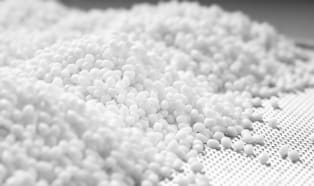
November outlook for Polish poliolefin market uncertain
Converters, as usual, have been sluggish in the market in late October. All of its players have been waiting for new price announcements.

Converters, as usual, have been sluggish in the market in late October. All of its players have been waiting for new price announcements.

Customers often wait until the second week of the month to make purchasing decisions. They want to have a complete picture of the market

The end of September has seen increased demand for polyolefins compared with the middle of the month in the Polish market.

The Polish polyolefin market was mainly inactive in H1 June.

With AM now an established production technology for certain applications, there are barriers to mass adoption that are being addressed, including the need for in-process and post-process metrology technologies that can validate the quality and accuracy of the parts produced.

The market is in turmoil. The escalating Russian-Ukrainian war is distracting from the deal. An unprecedented situation, market participants do not know how to react.

To ensure optimal service, the technicians at Vecoplan paid particular attention to the performance, availability and process stability of the machines and systems.

Now, while we are fighting the COVID-19 pandemic, plastics use is increasing again. But, while the pandemic is just temporary, plastic pollution will be long lasting, says Dr Fengwei (David) Xie from WMG, University of Warwick.

In consideration of the measures adopted by the Government with regard to the spread of coronavirus, Amaplast underlines that to date its member companies have implemented all the actions required by legislation to protect the health and safety of their employees.

In an interview in “Die Welt” the new EU Commissioner for Environment, Virginijus Sinkevicius, thinks aloud about a general ban on plastic packaging in Europe.

The plastics or polymers industry was for many years a hidden industry. For most of its history, nobody has known much about the plastics business because it is sandwiched between oil and gas and a huge variety of finished goods.

A new study sponsored by the environmental group WWF says that people could be ingesting a credit card sized amount of microplastics every week.